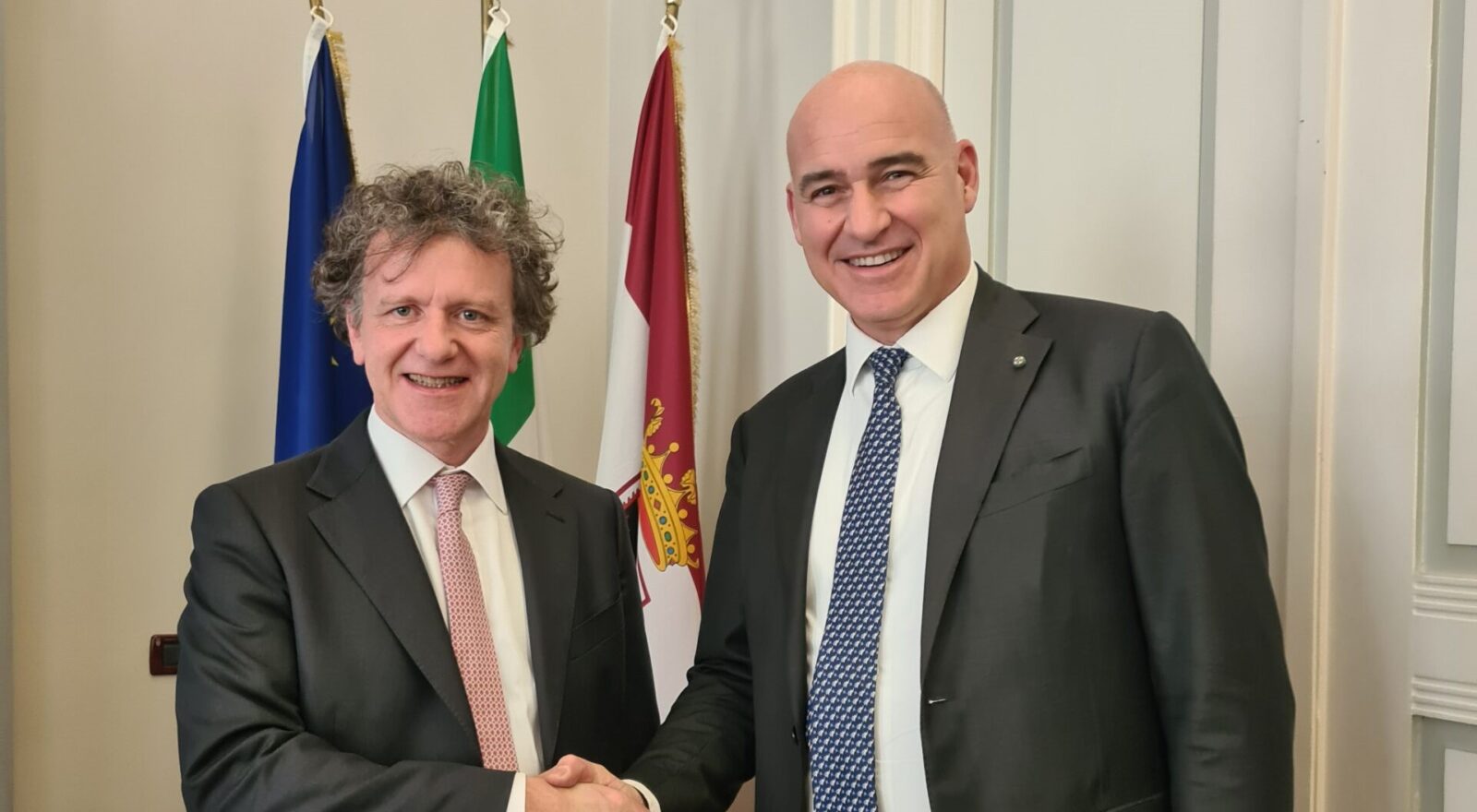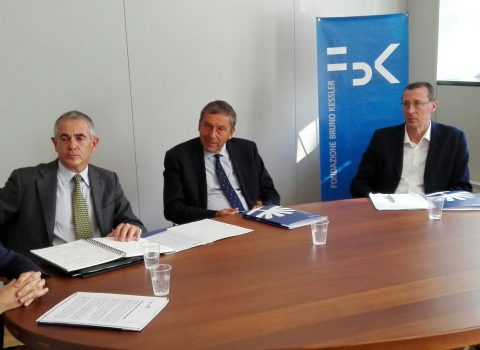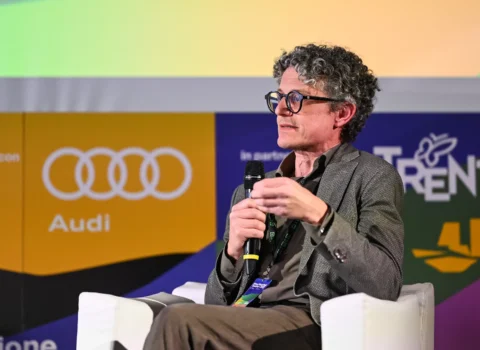
The CLEANSE Lab – CLoud Native ApplicatioN Security is here
FBK and DEDAGROUP have created a new Co-Innovation Lab dedicated to Cybersecurity.
The historic partnership between Dedagroup, an aggregation hub of Italian excellence in Software and Solutions As a Service that accompanies companies, financial institutions and PA in the evolution of IT and digital strategies, and Fondazione Bruno Kessler (FBK), an international research center based in Trento that works in the fields of science, technology and human sciences, has been further strengthened. In fact, it doubles the collaboration started in 2016, the year the first Co-Innovation Lab dedicated to AI & Data Engineering was established, with the creation of a second joint lab for continuous technology transfer, focused on cybersecurity for next-generation software, a topic that is increasingly crtical today for public and private companies of all sizes.
Thus the Cleanse Co-Innovation Lab – CLoud Native ApplicatioN Security has been established, a joint investment in sharing the strong competencies of its promoters, with the aim of enabling the market to integrate new methodologies and new tools for the development of cloud native software secure by design, so as to anticipate and respond to the increasingly high standards required in the field of cybersecurity – linked for example to the new NIS2 regulation – and to the complexity of the challenges posed by new technology and application scenarios.
With this in mind, FBK will provide Cleanse with the resources and methodologies of its Center for Cybersecurity committed to two main lines of research: digital identity and security of distributed services. Dedagroup, on the other hand, will bring the field experience of an operator committed to accompanying more than 4,000 clients in digitization, many of them active in “critical” sectors from the point of view of the sensitivity of the data processed, such as public administrations and financial institutions.
FBK President Ferruccio Resta stressed, “The new Cleanse lab represents a significant step in the evolution of our partnership with Dedagroup, emphasizing the security of cloud-native software and developing techniques for the integration of Artificial Intelligence algorithms that ensure both application security and reliability. Through the new Co-Innovation Lab, we aim to anticipate emerging cybersecurity challenges by promoting both the innovative approach of security by design, with the integration of security measures from the earliest stages of software development, and by providing cutting-edge tools to address current and future threats. Our well-established collaboration with Dedagroup allows us to combine advanced research and practical applications, thus helping to build a more secure and reliable digital ecosystem.”
One of the first areas of application of Cleanse’s work will be the strengthening of the Digital Hub, the Data & AI Engineering platform developed by the first Co-Innovation Lab, which enables simplifying and speeding up the management of the data lifecycle from its generation, transformation and enhancement – including through Artificial Intelligence technologies – to its visualization and exposure. This will enable Dedagroup to evolve software architectures into cloud-native infrastructures even faster, offering the market new models and methodologies for developing secure solutions by design.
Marco Podini, Executive Chairman at Dedagroup added, “As a leading Group engaged in software and application development, we have always seen research as an essential asset to continue to guarantee our customers the highest product standards. Today, this allows us to respond effectively to the increased complexity associated with the latest advances in the development domain: from the implementation of cloud-native solutions, to the integration and adoption of advanced technologies such as AI. This is why we believe it is of paramount importance to work together with an institution like FBK also on the cybersecurity front, one of the strategic areas against which all kinds of industries are measuring themselves and will be called upon to build on.”
It is precisely this trend of exponential risk growth that the Clusit 2024 report captures, proving the need for new security solutions and skills. In 2023, serious cyber attacks grew worldwide by 12% vs. 2022, and by as much as 65% in Italy, confirming that the measures taken are still not enough. Compared to 2022, there has been an increase in attacks especially in the Healthcare (+2%) and Financial/Insurance (+3%) sectors. The Education, Manufacturing, Transportation/Storage, and Wholesale/Retail sectors ave also seen higher rates.
If solutions come from software development, skills come from training. This is why the Cleanse Co-Innovation Lab contributes to respond to the growing cybersecurity skill gap with the activation of two three-year industrial PhD program positions that combine activities to be conducted both within FBK and in Dedagroup.
Si rafforza ulteriormente la storica partnership tra Dedagroup, polo di aggregazione delle eccellenze italiane del Software e delle Soluzioni As a Service che accompagna aziende, istituzioni finanziarie e PA nell’evoluzione delle strategie IT e digitali, e Fondazione Bruno Kessler (FBK), centro di ricerca internazionale con sede a Trento che opera in campo scientifico, tecnologico e delle scienze umane. Raddoppia infatti la collaborazione avviata nel 2016, anno di nascita del primo Co-Innovation Lab dedicato ad AI & Data Engineering, con la creazione di un secondo laboratorio congiunto per il trasferimento tecnologico continuo, focalizzato sulla cybersecurity per il software di nuova generazione, tema oggi sempre più cruciale per imprese pubbliche e private di ogni dimensione.
Nasce così il Co-Innovation Lab Cleanse – CLoud Native ApplicatioN Security, investimento congiunto per la condivisione delle forti competenze dei suoi promotori, con l’obiettivo di permettere al mercato di integrare nuove metodologie e nuovi strumenti per lo sviluppo di software cloud native sicuri by design, così da anticipare e rispondere ai sempre più elevati standard richiesti nel campo della cybersecurity – legati per esempio alla nuova normativa NIS2 – e alla complessità delle sfide poste dai nuovi scenari tecnologici e applicativi.
In quest’ottica, FBK metterà a disposizione di Cleanse le risorse e metodologie del proprio Centro per la Cybersecurity impegnato su due principali linee di ricerca: l’identità digitale e la sicurezza dei servizi distribuiti. Dedagroup, invece, porterà l’esperienza sul campo di un operatore impegnato ad accompagnare nella digitalizzazione oltre 4000 clienti, molti dei quali attivi in settori “critici” dal punto di vista della sensibilità dei dati trattati, come amministrazioni pubbliche e istituzioni finanziarie.
Ferruccio Resta, Presidente di FBK, sottolinea: “Il nuovo laboratorio Cleanse rappresenta un passo significativo nell’evoluzione della nostra partnership con Dedagroup, ponendo l’accento sulla sicurezza dei software cloud native e sviluppando tecniche per l’integrazione di algoritmi di Intelligenza Artificiale che garantiscano non solo la sicurezza, ma anche l’affidabilità delle applicazioni. Grazie al nuovo Co-Innovation Lab, miriamo ad anticipare le sfide emergenti nel campo della cybersecurity, promuovendo sia l’approccio innovativo della security by design, con l’integrazione di misure di sicurezza fin dalle prime fasi di sviluppo di un software, sia fornendo strumenti all’avanguardia per affrontare le minacce attuali e future. La collaborazione ormai consolidata con Dedagroup ci consente di combinare ricerca avanzata e applicazioni pratiche, contribuendo così a costruire un ecosistema digitale più sicuro e affidabile”.
Uno dei primi ambiti di applicazione del lavoro di Cleanse sarà il rafforzamento del Digital Hub, la piattaforma di Data & AI Engineering sviluppata dal primo Co-Innovation Lab, che consente di semplificare e velocizzare la gestione del ciclo di vita del dato dalla sua generazione, trasformazione e valorizzazione – anche attraverso tecnologie di Intelligenza Artificiale – fino alla sua visualizzazione ed esposizione. Questo permetterà a Dedagroup di evolvere ancora più velocemente le architetture software in infrastrutture cloud native, offrendo al mercato nuovi modelli e metodologie per lo sviluppo di soluzioni sicure by design.
Marco Podini, Presidente esecutivo di Dedagroup aggiunge: “Come primario Gruppo impegnato nello sviluppo di software e applicativi, da sempre vediamo nella ricerca un asset imprescindibile per continuare a garantire ai nostri clienti i più elevati standard di prodotto. Oggi, questo ci permette di rispondere con efficacia all’incremento della complessità legata alle più recenti evoluzioni nell’ambito dello sviluppo: dalla realizzazione di soluzioni cloud native, all’integrazione e adozione di tecnologie avanzate come l’AI. Ecco perché riteniamo sia di fondamentale importanza lavorare insieme a un’istituzione come FBK anche sul fronte della cybersecurity, uno degli ambiti strategici su cui ogni tipo di industria si sta misurando e sarà chiamata a strutturarsi”.
È proprio questo trend di esponenziale crescita del rischio che fotografa il rapporto Clusit 2024, confermando la necessità di nuove soluzioni e competenze in ambito sicurezza. Nel 2023, gli attacchi informatici gravi sono cresciuti nel mondo dell’12% vs il 2022, e di ben il 65% in Italia, confermando che le misure adottate non sono ancora sufficienti. Rispetto al 2022, si registra in particolare un aumento di attacchi nei settori Healthcare (+2%) e Financial/Insurance (+3%). Anche i settori Education, Manufacturing, Transportation/Storage e Wholesale/Retail confermano una crescita.
Se le soluzioni arrivano dallo sviluppo del software, le competenze arrivano dalla formazione. Per questo motivo il Co-Innovation Lab Cleanse contribuisce a rispondere al crescente cybersecurity skill gap con l’attivazione di due Dottorati di Ricerca industriali articolati in un percorso di tre anni che combina un’attività mista svolta sia all’interno di FBK che in Dedagroup.
Dedagroup/FBK Press release


